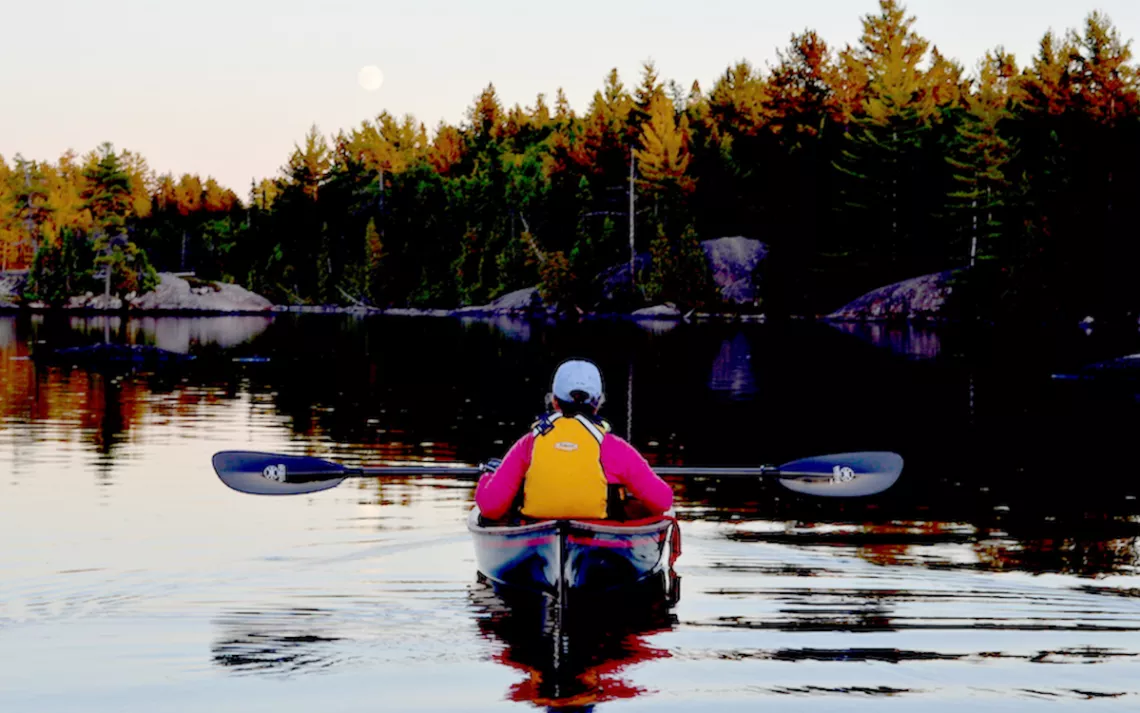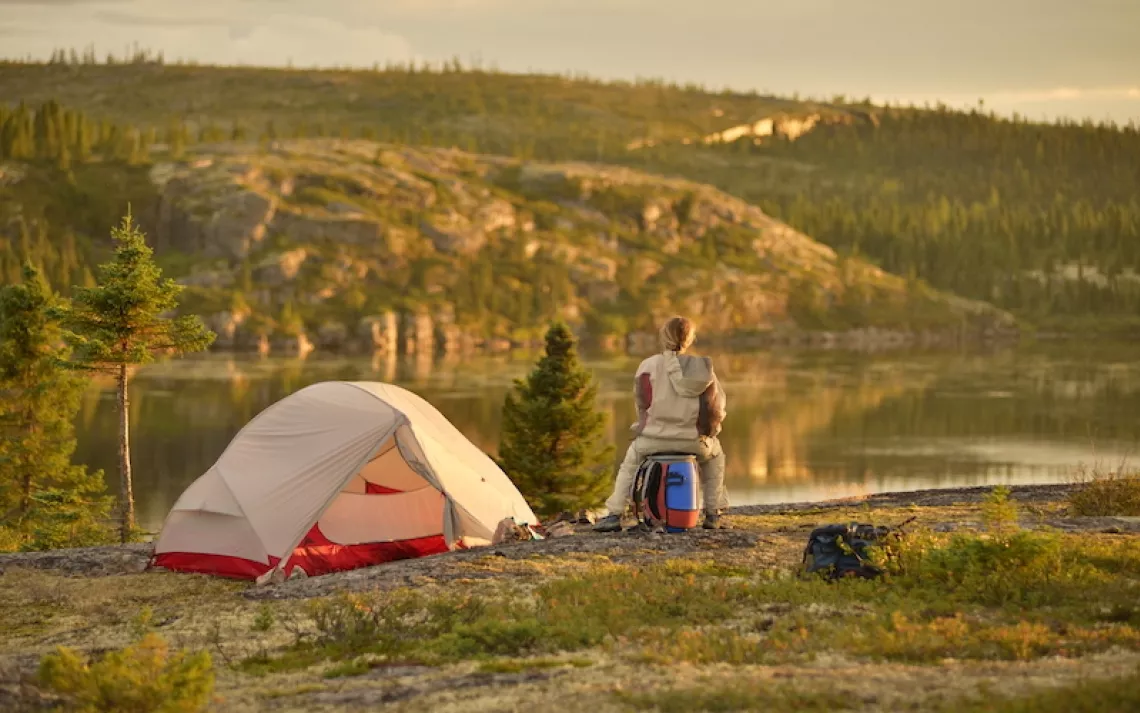The Power of City Camping
A new Detroit program opens a long-unused campground to local youths
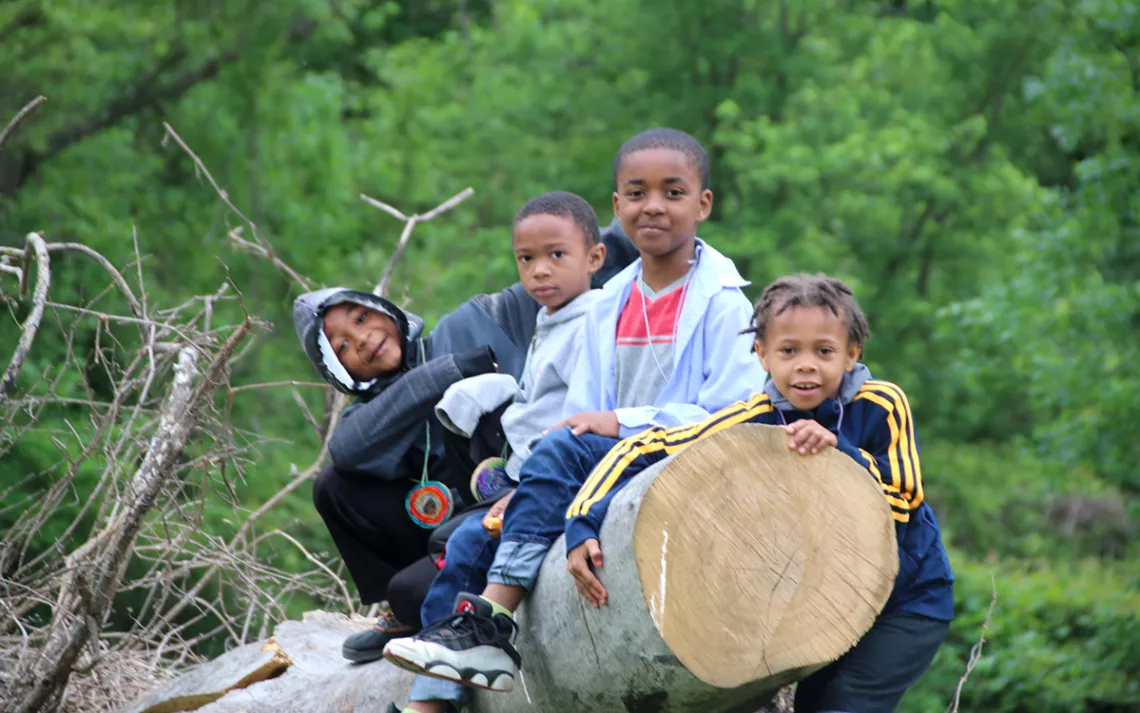
Photo courtesy of Marlin Franklin
Until the last couple of months, no one had used Detroit’s sole campground in more than a decade. In May, the first group of kids arrived to set up camp. The site, unbeknownst to most Detroiters, is nestled in the city’s 1,184-acre Rouge Park.
Just three years ago, Scout Hollow, once a staple of local Boy Scouts’ camping regimens, was overgrown. That’s when the Sierra Club’s Detroit Inspiring Connections Outdoors (ICO), an outdoor adventure and education program that aims to provide urban youths with positive outdoor experiences, along with a few like-minded partner organizations, swooped in to clean it up. Over time, Detroit ICO, the City of Detroit Parks and Recreation Department, and the YMCA of Metropolitan Detroit joined forces to launch Detroit Outdoors, a program that enables young workers and teachers to take groups of kids camping.
The idea for the program originated with former First Lady Michelle Obama’s “Let’s Move Outside” initiative. The above organizations collaborated with the National Park Service’s urban liaison for Detroit to figure out how to make a camping program a reality, and organizations including Friends of Rouge Park, the U.S. Forest Service, the Fish and Wildlife Service, and the Outdoors Empowered Network provided resources and expertise.
The ultimate mission of Detroit Outdoors is to foster young people’s connection to nature, which Detroit ICO chair Garrett Dempsey describes as “a really powerful and important force that helps us heal and connect with one another.” Dempsey adds, “We have a pace of life that often ignores these natural spaces,” and for Detroit youths, “it’s right here for them, right in their backyard.”
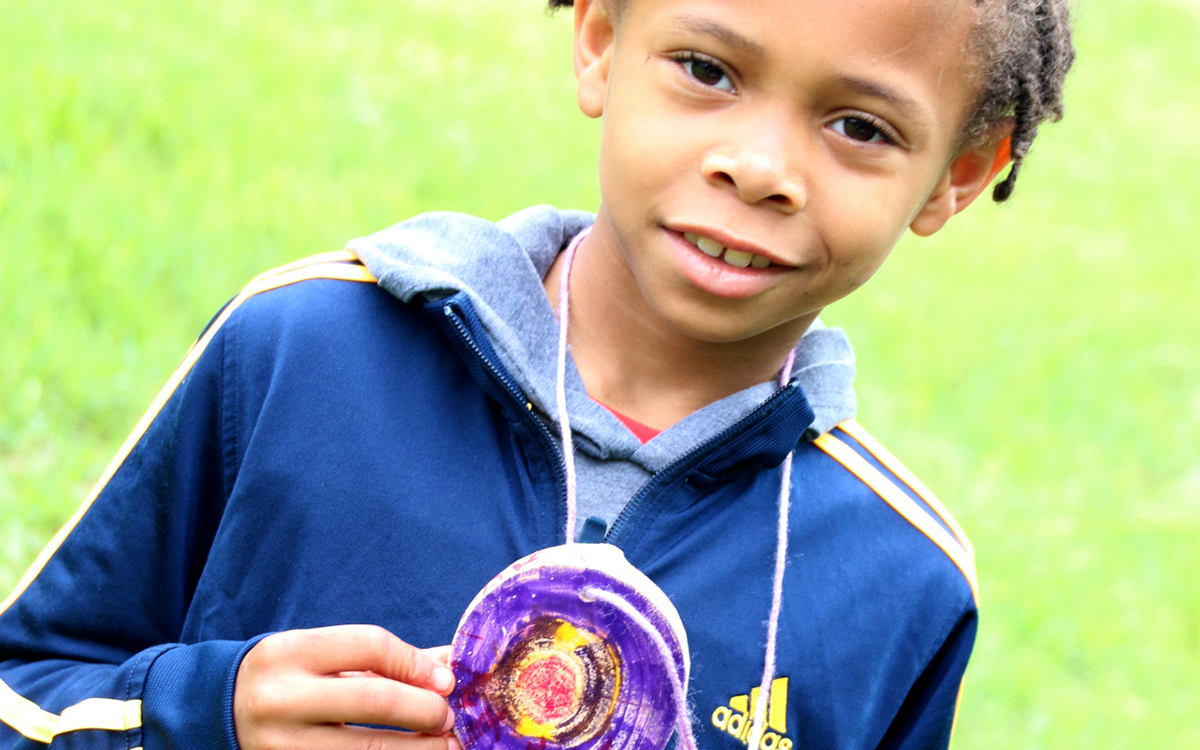
Photo courtesy Marlin Franklin
Detroit Outdoors trains teachers and other adults who work with youths through a camping leadership immersion course and loans them tents and other camping gear through Detroit ICO’s gear library. The idea is to empower teachers and leaders who already know kids to lead them on camping adventures (rather than handing the group off to an unfamiliar adult) and to remove the obstacle of obtaining all the necessary gear.
Some of Scout Hollow’s first trainees included leaders from Public Allies, buildOn, and the Girl Scouts and Boy Scouts. “A common thread was people expressing surprise about this amazing campground being right in Detroit,” Dempsey says.
Chrysantha Norwood, an elementary school teacher, Girl Scout leader, and volunteer with GirlTrek, an organization that aims to get black women exploring the outdoors via foot, was among the first to complete the training. “Kids don’t go outside like they used to when I was younger,” she says, “and their health suffers because of it.” Getting kids out in nature gets them to slow down, she says, specifying that it “gives them some time to reflect and decompress.”
Located under the tree line and along Detroit’s rushing Rouge River, Scout Hollow feels nothing if not secluded. “It was like we were in another world,” Norwood says of the training. “That’s its greatest benefit—to show [kids] something different right in their own space.” As of today, 155 youths have spent the night under the stars through Detroit Outdoors.
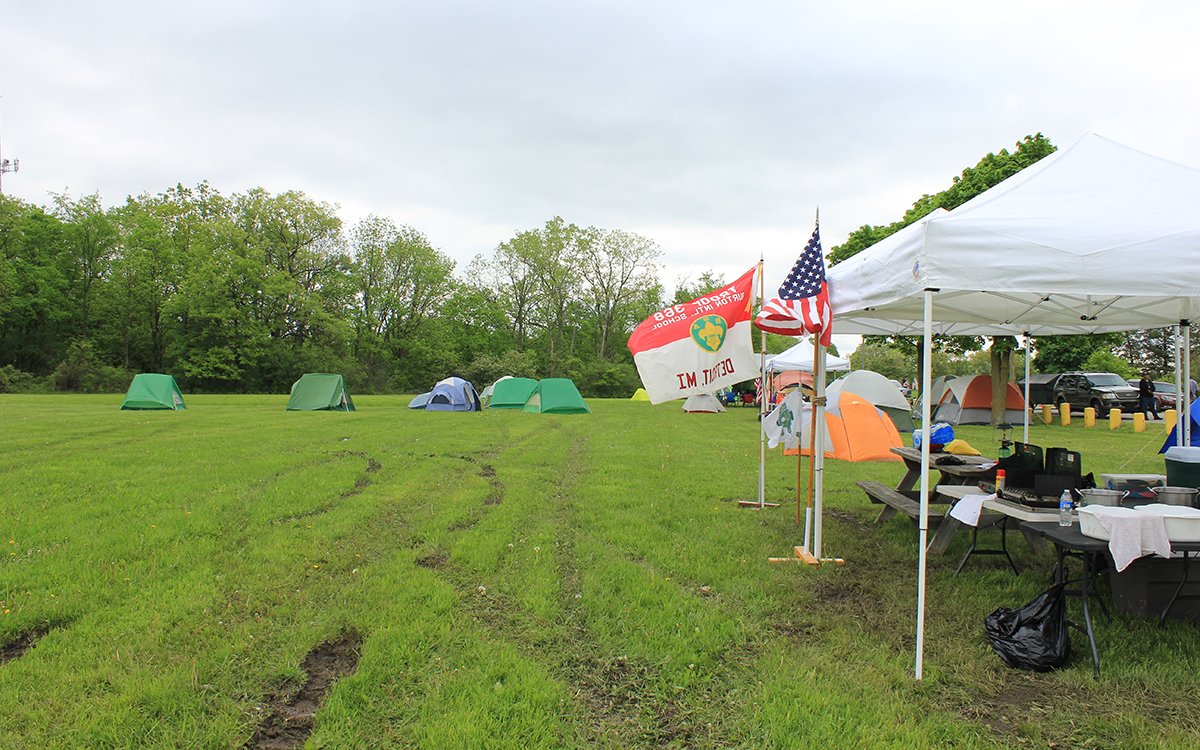
Detroit Outdoors' inaugural campers set up at a secondary site in Rouge Park on that first outing in May (photo courtesy Allison Burtka).
Kids who live in the city may have less exposure to nature than suburban kids have, but they also “have a different level of stress,” Norwood explains. “Children come in with so much trauma in their lives, which affects their psyche and their development. But studies have shown that being in nature actually improves your mental fitness. You calm down, and your heart rate slows down.”
Norwood adds that yet another barrier to getting city kids outside is the specious notion that African Americans don’t go camping. “Yes we do!” Norwood says, explaining, “Those fears come from our parents. I remember wanting to canoe when I was a child, and my mother was like, ‘No you’re not getting in that water.’” After Norwood became a kayaker, her mother asked, “When did you become so adventurous?” Norwood’s response: “I always was. I just needed permission to be.” Detroit Outdoors, she says, “gives our children permission to be. So many don’t get exposed to things, and when they grow up, they say, ‘Oh, I don’t like camping.’ Well, how do you know? You’ve never been camping.”
Unfortunately, last May’s initial group of Detroit Outdoors campers showed up to a rainstorm-sogged Scout Hollow. But they ended up camping in a different area of the park—an open meadow (pictured, above)—and the change in location didn’t dampen their enthusiasm.
“The kids are amped up,” Kemeya Stokes, a Boy Scout troop leader, told Sierra on the second day of the weekend-long trip. Although most of Stokes’s scouts had camped before, most of them associated the endeavor with a long drive. “Here we are in the heart of Detroit,” she said, adding that camping just 10 minutes from home significantly reduced costs for the group, making the trip accessible to many more. “A lot of youth can’t afford to go out farther,” said Stokes, who adds that while some scouts’ parents found the idea of camping in Detroit funny at first, “they were quick to say, ‘Yes, my child is going.’”
Campers also got to learn about the site’s and the park’s history, and spent time cleaning up the park. “We’re Detroit natives, and Rouge Park is a big part of Detroit,” says Kevin Johnson, a scoutmaster with another Boy Scout troop that participated in Detroit Outdoors’ inaugural campout. Getting and immersing kids out there is “good for the environment and for the future,” Johnson says.
Dempsey notes that the benefits of spending time in nature run even deeper than improvements to physical and mental health. “What I’ve seen, both in trips far away and in field trips right inside the city, is that there’s both a personal transformation when a young person is immersed in nature as well as a group transformation,” he explains. “It allows them to develop relationships with one another that wouldn’t necessarily form the same way if the context and healing power of nature wasn’t right there.”
Dempsey says he hopes to build a cumulative appreciation for nature, noting that while he’s witnessed changes in kids after just a single experience, “what’s most amazing is the change that you can see over time, as young people become more comfortable with the outdoors.” He recalls one recent high school grad who started participating in Detroit ICO programs four years ago. In the beginning, Dempsey says, setting up a tent and “going on a night hike without a flashlight were really fascinating to him.”
Last year, on his third camping trip, this young man, along with several others, hiked to the top of a sand dune overlooking Lake Michigan at night, under a full moon. It was his first time seeing the Great Lake. “We were just standing there, looking at the full moon, quietly absorbing the moment and the beauty, and he said, ‘Hey, Mr. Garrett, have you ever heard people say that when you look at the moon, you can talk to your ancestors?’ I said, ‘Yeah, I’ve heard things like that,’ and he said, ‘Do you think it’s true?’” Dempsey didn’t have an answer, but that didn’t matter, he says. “What’s powerful is that question. He asked that question, and now he’s got the rest of his life to have a conversation with his ancestors.”
Dempsey adds, “If you’re not comfortable being outside, and hearing the sound of bugs around you, I don’t know if you can look at the moon and wonder about your ancestors.”
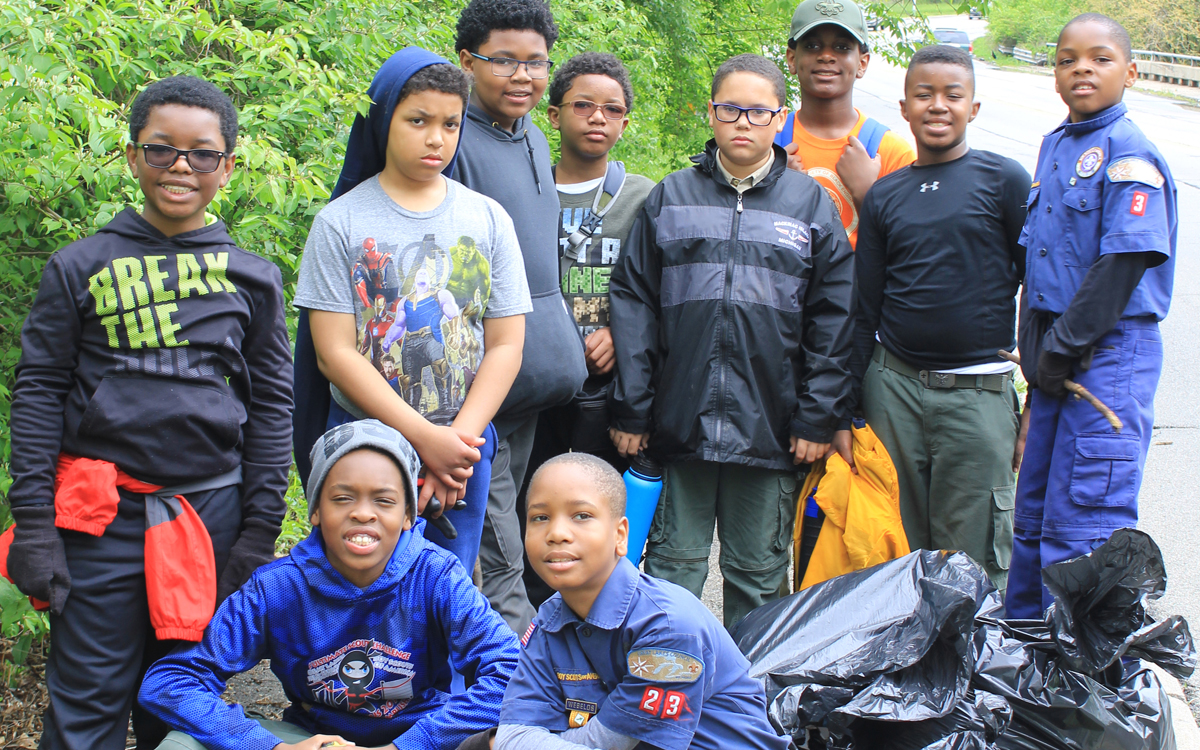
Photo courtesy Allison Burtka
 The Magazine of The Sierra Club
The Magazine of The Sierra Club


